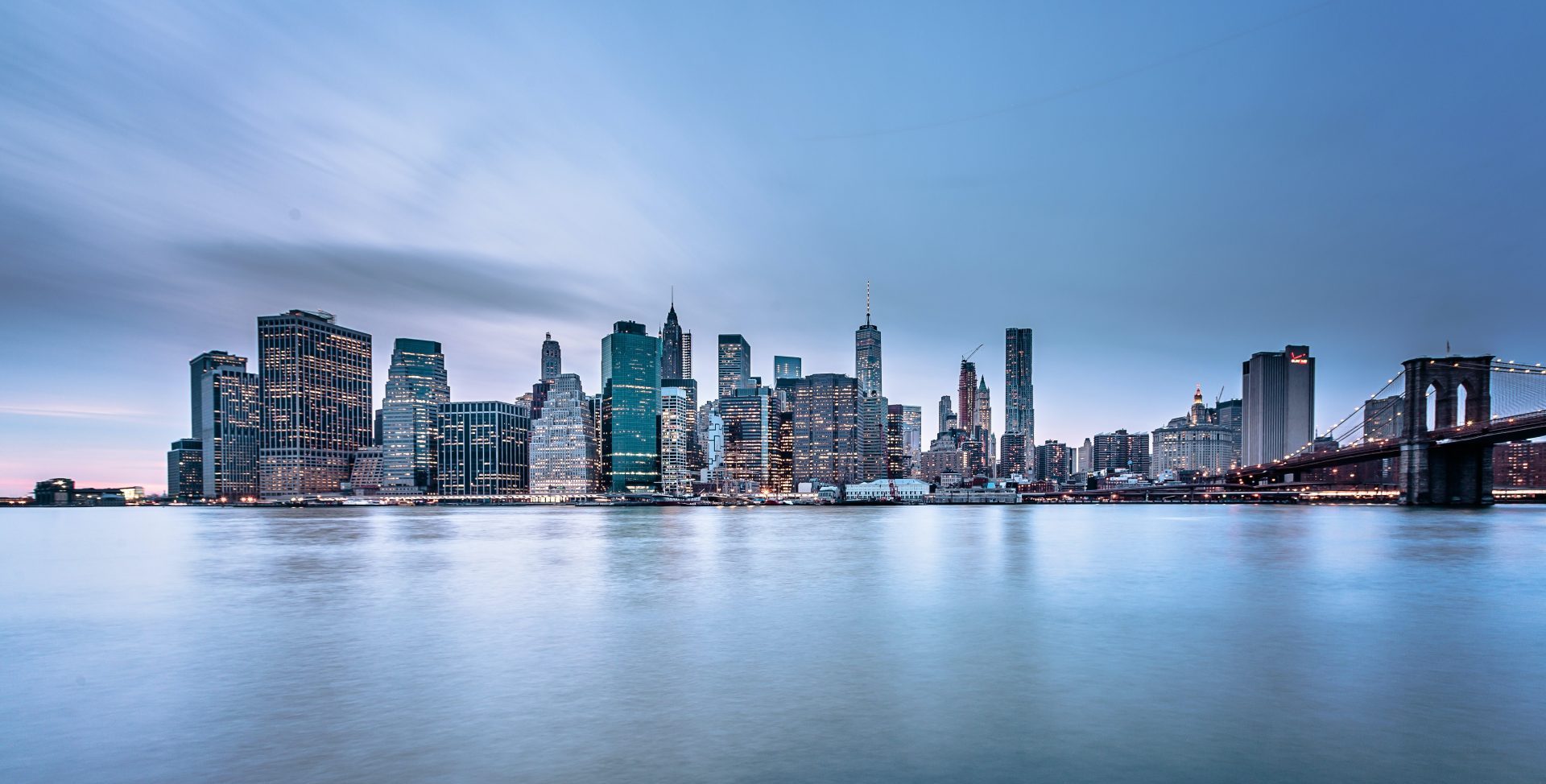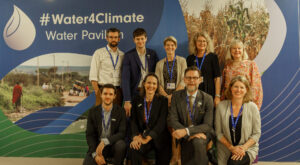5 messages from SIWI to the UN 2023 Water Conference
What needs to happen at the historic UN 2023 Water Conference on 22-24 March? SIWI has summarized five critical actions the world must take. By improving the management of water, it is possible to not just address the growing water crisis but also to build more resilient and equitable societies.
There is a lot at stake when the international community meets for the UN 2023 Water Conference, the first such event since 1977, and only the second time in the history of the UN. We now have a much better scientific understanding of how the dangerous pressure humans put on the water cycle impacts the whole Earth system, and we know that water is at the core of today’s many interlinked crises.
The world has also promised to address these challenges through the 2030 Agenda for Sustainable Development, adopted in 2015. But progress has been alarmingly slow, which would mean that we miss the chance to set the world on a safer and more sustainable path. The UN 2023 Water Conference offers an invaluable opportunity to do things differently and start using water governance to address challenges such as climate change, environmental degradation, poverty, and inequality.
This is a chance and a responsibility not just for governments, but also for local communities, businesses, academia, and civil society.
Five messages from SIWI ahead of the UN 2023 Water Conference
1) Water is a powerful tool for ambitious climate action
Water is fundamental to all aspects of climate action, both mitigation and adaptation. Water must therefore be at the heart of all climate strategies. In 2022, SIWI and partners issued the first summary of research on the role of water for climate mitigation, The Essential Drop to Net-Zero: Unpacking Freshwater’s Role in Climate Change Mitigation. Based in these new insights we advocate for a new kind of climate policy, incorporating water-related solutions that simultaneously mitigate greenhouse gas emissions and help people adapt to the unavoidable consequences of climate change.
What needs to happen:
- Sound management of water and landscapes can cut greenhouse gas emissions, reduce disaster risks, and make communities more resilient. It is crucial to incorporate water-wise perspectives into all climate work, be it strategies, programmes, or funding.
- Improved water governance is critical for both climate adaptation and mitigation, at all levels.
- The international community must allocate sufficient financing for both adaptation and mitigation, delivering on already made commitments. Moreover, financing flows must create impact for those most affected on the ground.
2) Restore the water cycle from source to sea
Healthy ecosystems are a prerequisite for sustainable and resilient societies. But in the past decades, human activity has fundamentally altered natural systems to a dangerous degree. The water cycle is increasingly broken due to global heating, population growth, infrastructure, and changes in land use. This puts both humans and nature in danger.
To reverse this trend, we need to work with nature, governing land and water holistically, from source to sea. Only then can we overcome the fragmentation and institutional silos that prevent us from achieving the 2030 Agenda on Sustainable Development. It is welcome that the UN 2023 Water Conference emphasizes the importance of cross-sectoral cooperation and source-to-sea management so that these tools can become more widely applied.
What needs to happen:
- Investment must be made in restoring natural ecosystems that can store and clean water, buffer droughts and floods, store carbon and preserve plants and animals well into the future. Communities will benefit from more holistic decision-making that recognizes the connections between land, freshwater, coastal areas, and marine ecosystems.
- International frameworks and national policies must lay the foundations and funding for coordination between sectors and cooperation between upstream and downstream interests. On-the-ground action can be supported with local and traditional knowledge, and steps taken to address local priorities.
All sectors upstream – cities, farmers, industries, and everyone else – have a shared responsibility for water resources and should work together to reduce or halt activities that damage life dependent on downstream waters.
3) Universal health requires improved water governance
Dirty water and unsafe sanitation are leading causes of preventable disease and death in many low-income countries. Some countries are actually getting further away from reaching their sanitation targets due to population increases. Changing this must be a top priority, which requires a strong focus on improved water governance. Almost half the global population uses sanitation services that leave human waste untreated, which is a severe threat to both human and environmental health. Yet, investment in water, sanitation, and hygiene (WASH) services is paltry compared to other basic services – only 0.4 percentage of GDP as a global average.
Priorities need to change since access to clean water and safely managed sanitation is not only central to human dignity but also necessary to combat disease, improve nutrition, increase school enrolment rates and productivity, and tackle gender discrimination. The social return on investment is high, with every dollar spent estimated to save four dollars to society.
What needs to happen:
- It is important to strengthen the institutional capacity of the water sector and fight corruption at every level.
- The international community and multilateral agencies must increase impactful financial and technical support to least developed countries and fragile settings.
4) Cooperation over waters strengthens water security
Water-related climate change, environmental degradation and ecological disasters are growing threats to the world. They cause human suffering and disrupt societies in ways that can trigger further instability and conflict, especially in already unstable regions. But water can also be a catalyst for peace and cooperation. Communities and countries that share a river, lake, or groundwater aquifer have everything to gain from managing it jointly. By working together, they can increase their long-term resilience in an era of growing water stress and rising global temperatures.
What needs to happen:
- Much can be learned from successful examples of transboundary cooperation around the world. Other countries may wish to replicate these experiences to facilitate the protection and use of transboundary waters and environments.
Everyone’s well-being depends on a healthy environment, and therefore fresh and saline waters must continue to be restored and protected.
5) To be effective, water governance must always be inclusive
To achieve the necessary transformations of our societies, all voices must be heard, and everyone should be able to contribute to decision-making processes that concern them. We need to understand our dependence on nature and on each other, across the world. For these processes to be effective, they must be inclusive, which could mean challenging established hierarchies and norms related to gender, age, income, ethnicity, and social status. It is important that the UN 2023 Water Conference honors its overarching guiding principle of inclusion.
What needs to happen:
- To be effective, decision-making about water management and water services must be inclusive and transparent, with meaningful participation also of traditionally marginalized groups.
- Gender, youth, indigenous, and vulnerable people’s perspectives must always influence decisions-making.
- Countries must commit to trans-sectorial water cooperation for equitable and inclusive socio-economic development, including all underrepresented populations and taking future generations into account.
Follow SIWI to New York
On 22-24 March, the United Nations headquarters in New York will host a historic conference on freshwater. SIWI will play an active role to ensure that countries finally tackle the urgent water crisis and deliver on commitments already made.
Learn more about our positions & activities








